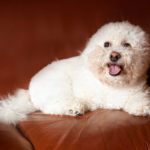- lmplovemypuppy
- February06,2023
- 1055
- 0
Before getting overly excited and rushing out the door to bring home a puppy, consider how much research you’ve conducted on the dog breed you’re thinking of getting. Research plays a significant role, even when you’re thinking about mixed breeds. Different breeds have been created over hundreds, if not thousands, of decades to carry out extremely specific activities. This will have a major impact on how different breeds behave. It’s essential to understand what you’ll be stepping into, and investigating breeds will help frame your preconceptions so that potential issues can be prevented. If you’re wondering exactly how to choose a dog breed, here are five important questions to ask yourself.
How Active Is My Lifestyle?
Different breeds, like people, have varying degrees of energy. A chubby, lazy puppy can suddenly transform into a constant fireball of energy, which, based on the breed and size, will prove problematic if you’re not prepared. If you want a couch companion, don’t choose terrier or working breeds. Dobermans, German shepherds, huskies, and pitbull terriers are examples of such breeds. Conversely, lower-energy dogs like Shih-Tzus, pugs, and basset hounds make better sofa pals.
Have I Checked If I’m Allergic to Dogs?
Numerous pet owners are unaware that they are allergic to dogs until they have gotten said dog. As a result, a dear family member is forced to go, leaving all parties devastated. Keep this from happening in your household! Do your due diligence beforehand and look for known hypoallergenic breeds, such as Yorkshire terriers and poodles.
Do I Have Enough Experience as a Dog Owner?
Certain breeds are just not suitable for a person who has never dealt with them before. A Rottweiler, for example, is not a smart choice for a first-time pet parent or someone with little expertise in managing such powerful breeds. If you are new to dog ownership, you should look for breeds that are very people-friendly and have minimal aggressiveness, dominating tendencies, and temperamental problems, such as Labradors or Pomeranians.
Are There Small Children in the House?
Choosing a dog that gets along nicely with your kids is crucial. Countless dogs wind up in the pound due to their inability to tolerate the shenanigans of small kids. Chihuahuas and Chow Chows, for instance, are not suitable for families with young kids as they are high-dominance breeds. In contrast, golden retrievers and Newfoundlands are complete opposites. However, keep in mind that all breeds, regardless of how tiny, well-trained, or mild-mannered they appear, must never be left unsupervised with a child or baby.
Is There a Baby on the Way?
If you’re currently thinking about starting a family or are already expecting your first child, ask yourself whether you would realistically have enough time for a new pup when your newborn arrives. How would you go about introducing a dog to a newborn? Would you be prepared to exercise your dog at 7:00 a.m. after staying awake the entire night with a crying newborn? Would you be capable of giving your dog the care he requires to avoid him becoming destructive? All of these crucial factors must be carefully considered.



